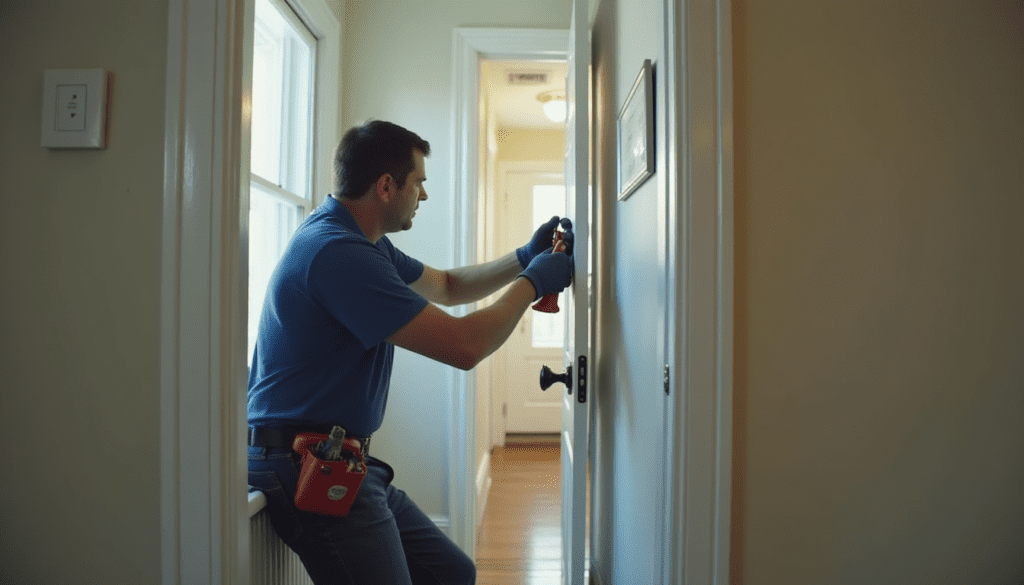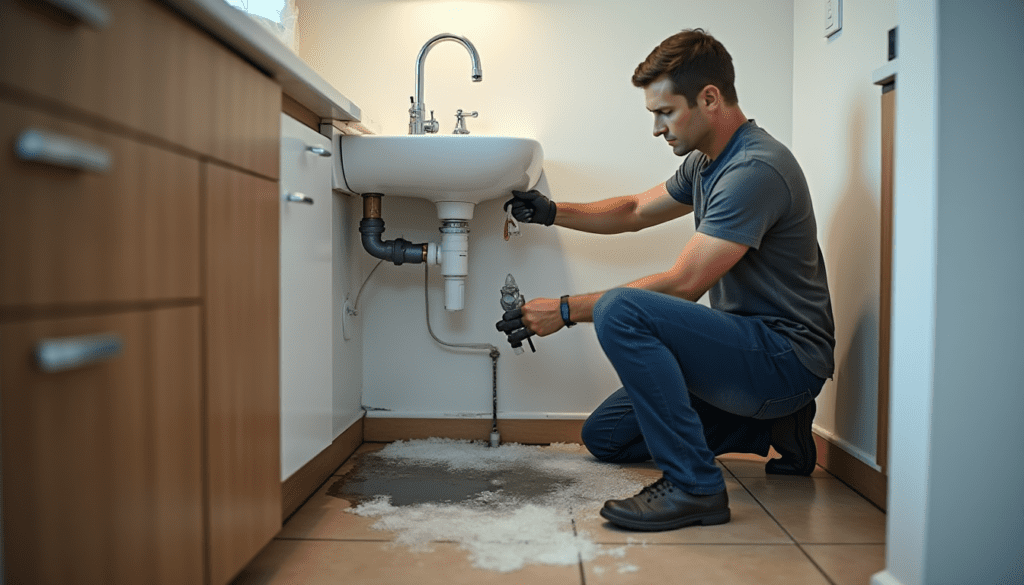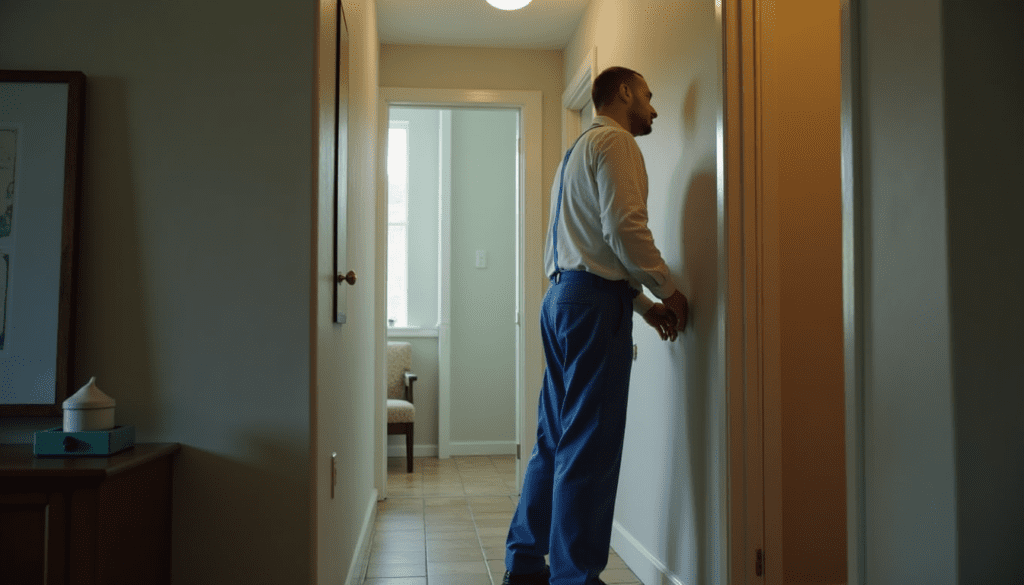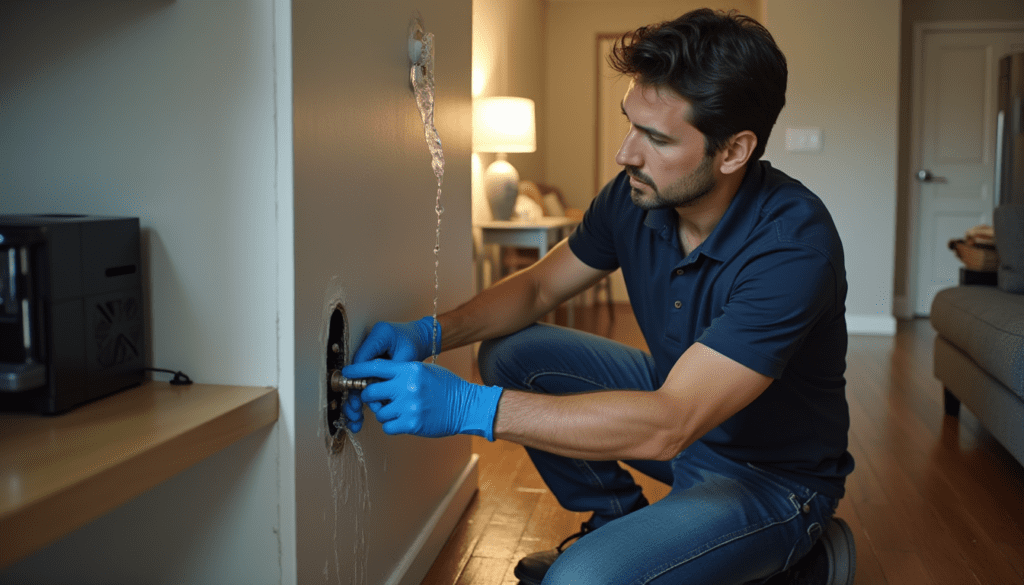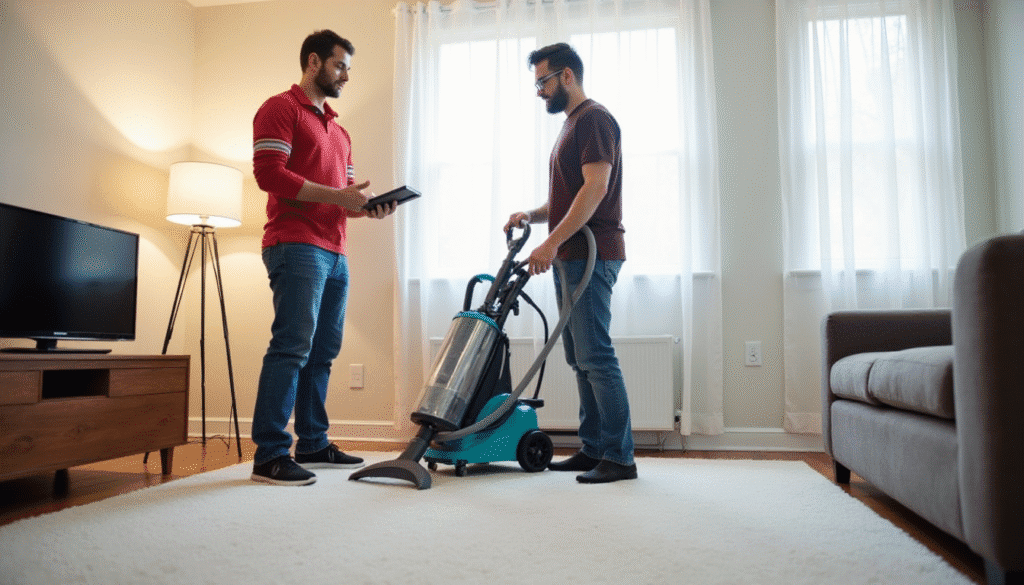One of the most common disputes between landlords and tenants in Essex County, NJ involves the cost of carpet cleaning at move-out. Some tenants are surprised to see this charge deducted from their security deposit, while landlords argue that a clean and presentable rental is a basic expectation for the next occupant. The law, however, makes clear distinctions between what counts as a tenant’s responsibility and what landlords must absorb as part of doing business. Understanding these rules helps both sides avoid conflict, protect their financial interests, and remain compliant with New Jersey landlord-tenant law.
In this article, we break down the rules around charging tenants for carpet cleaning in Essex County, explain how the law views wear and tear versus damage, and provide tips for landlords and tenants to document, negotiate, and resolve potential disputes. Whether you are a renter preparing for move-out in Caldwell, Newark, Montclair, or any other Essex County town, or a landlord managing multiple properties, these insights will help you navigate this often-confusing subject.
New Jersey Landlord-Tenant Law on Cleaning Responsibilities
New Jersey’s landlord-tenant regulations are designed to protect both parties. According to the Truth in Renting guide, tenants cannot be forced to pay for routine cleaning or normal wear and tear. That includes the natural flattening of carpet fibers, slight fading from sunlight, or minor scuffs that happen during the normal course of living.
However, the law also allows landlords to deduct from the security deposit if a tenant leaves behind damage or excessive dirt that requires professional cleaning. Courts in New Jersey frequently apply a reasonableness standard—if the charge seems excessive or the carpet was due for replacement anyway, the landlord’s claim may be rejected.
For landlords in Essex County, this means two key things: lease agreements must be written carefully, and deductions must always be supported by clear documentation. For tenants, it means understanding what the lease requires and knowing your rights under state law.
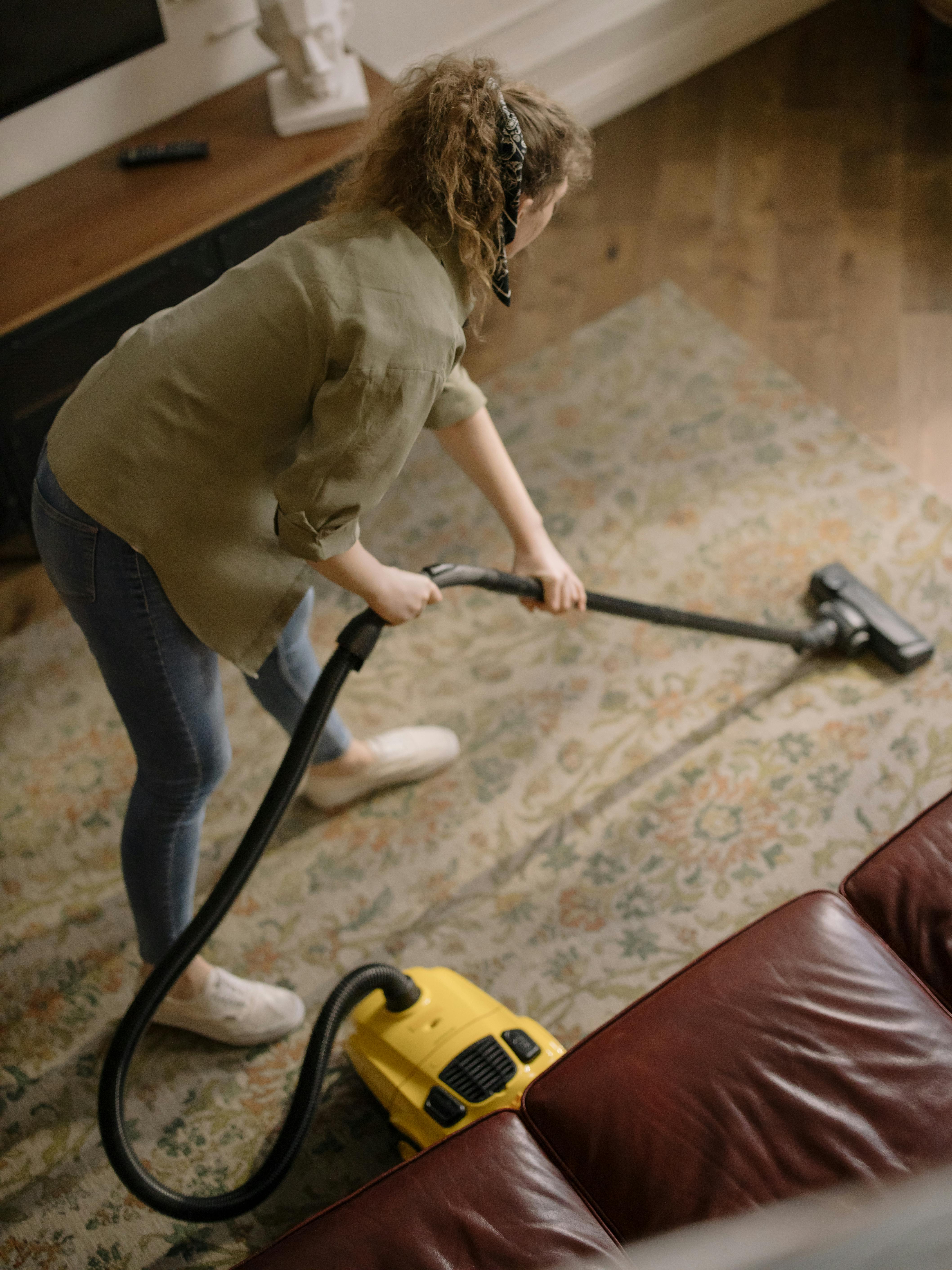
Lease Clauses and Carpet Cleaning Obligations
Some landlords in Essex County attempt to include specific clauses requiring tenants to pay for carpet cleaning at move-out. The enforceability of these clauses depends on how they are written. Courts in New Jersey have ruled that blanket statements like “tenant must pay for professional carpet cleaning upon vacating” can be challenged if they conflict with the principle of ordinary wear and tear.
Instead, leases that emphasize excessive stains, pet damage, or smoking-related residue tend to stand up better in court. The key is that the charge must be tied to actual conditions of the carpet rather than an automatic penalty. For example, a landlord in Caldwell, NJ recently avoided a dispute by presenting photos of wine stains left on a beige carpet, along with a professional cleaning receipt—evidence that demonstrated the need for the charge.
Tenants should carefully review these clauses before signing a lease. If a carpet cleaning clause exists, it should be specific, reasonable, and limited to conditions beyond ordinary use. Landlords should also remember that courts tend to favor clarity—ambiguous or overly broad clauses are often struck down.
Normal Wear and Tear vs. Excessive Damage
One of the most debated issues in New Jersey rental law is the difference between wear and tear and damage. Landlords may not charge tenants for carpets that have simply aged through use. For instance, a carpet that has naturally worn thin after several years or lost its original brightness due to sun exposure cannot be charged back to a tenant.
On the other hand, tenants can be held responsible if they leave carpets with pet urine, large stains, burns, or heavy dirt buildup that clearly goes beyond ordinary use. According to the Tenants’ Rights in New Jersey manual, landlords must be able to distinguish between normal wear and actual damage when withholding money from a deposit.
This is where documentation becomes essential. Conducting a thorough move-in inspection with photos, followed by a detailed move-out inspection, protects both landlords and tenants from unfair accusations. For example, a landlord in Montclair might note that the living room carpet was already five years old at the time of move-in. By move-out, the natural fading of color cannot fairly be charged to the tenant.
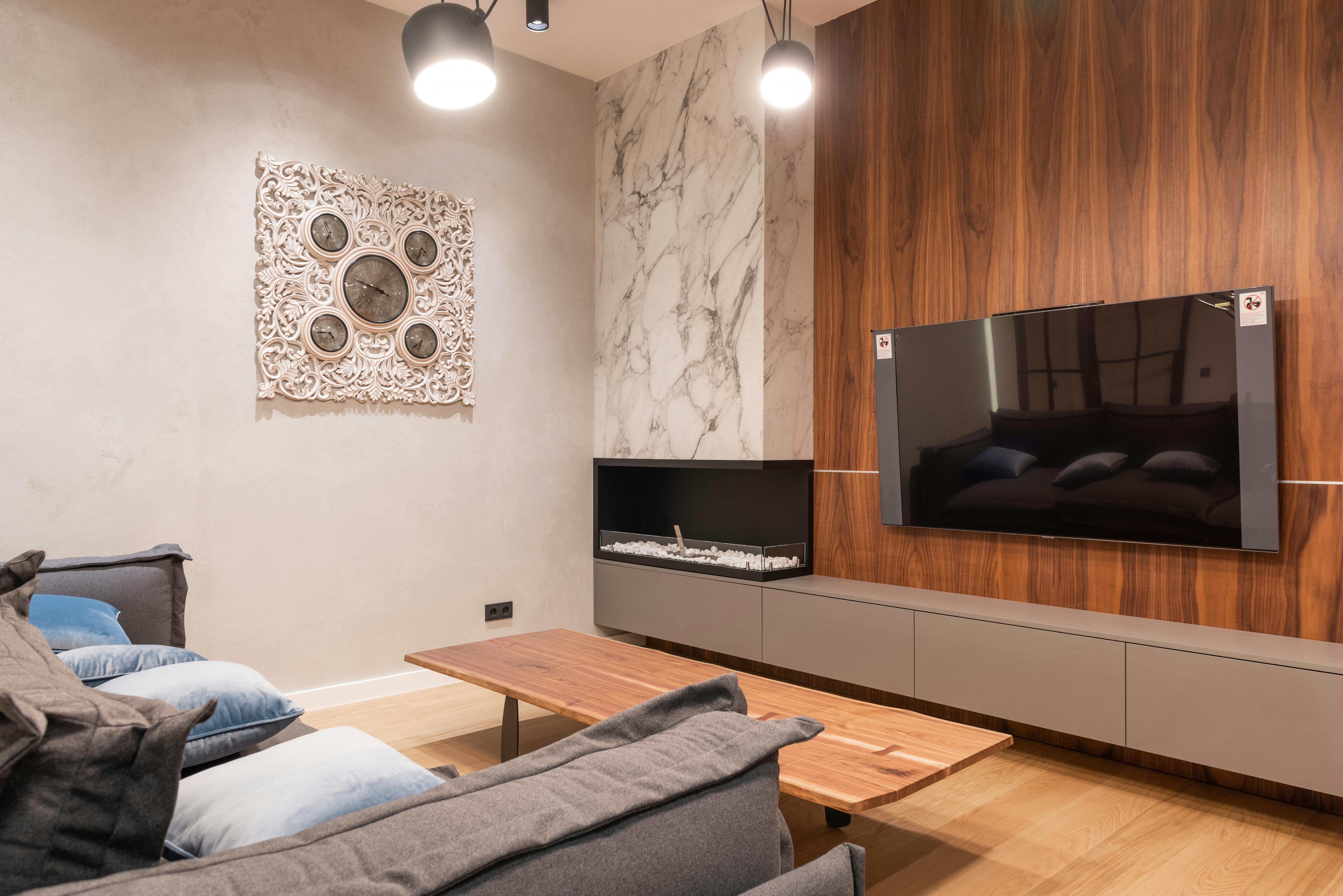
When Landlords Can Charge for Carpet Cleaning
In Essex County, landlords may only charge tenants for carpet cleaning if the carpet’s condition requires professional intervention beyond routine cleaning. This usually applies in situations such as:
- Pet damage – lingering odors, fur, or urine stains
- Heavy staining – wine, food spills, or mud tracked throughout the unit
- Smoking residue – nicotine stains and odors embedded in the fibers
- Neglect – carpets that appear never to have been vacuumed or maintained
New Jersey courts typically require landlords to provide receipts for any professional cleaning service used, as well as proof that the charge is reasonable. According to New Jersey Courts guidance, tenants may dispute a charge if it is not properly itemized or supported with documentation. If a landlord tries to deduct the full cost of replacing the carpet when only cleaning was necessary, courts will often rule in favor of the tenant.
In short: landlords must prove both necessity and cost, while tenants should always request a copy of any receipts related to cleaning deductions.
Security Deposit Deductions for Carpet Cleaning
Under New Jersey law, landlords may deduct carpet cleaning charges from a tenant’s security deposit, but only when the charge is legitimate. The Security Deposit Refunds Guide explains that deductions must be documented and itemized in writing within 30 days of move-out. This prevents landlords from withholding deposits unfairly and ensures tenants know exactly why money was taken.
For example, if a landlord in Newark spends $150 on professional carpet cleaning due to multiple food stains, they must provide a copy of the $150 receipt to the tenant along with the deposit refund statement. If they attempt to charge $500 without proof, the tenant can challenge the deduction in court and may even be awarded damages.
Tenants should know that they have the right to dispute unfair deductions. Landlords, meanwhile, should recognize that transparency and proper documentation not only protect them legally but also preserve professional relationships with renters. Failing to comply with deposit laws in Essex County can lead to lawsuits, court penalties, and damaged reputation.
Ultimately, fair and legal security deposit deductions strike a balance between protecting rental property and respecting tenant rights. This balance is what New Jersey courts consistently enforce.
Court Cases and Legal Standards in New Jersey
Carpet cleaning disputes in New Jersey often end up in small claims court, where judges apply the principle of reasonableness. A landlord may not automatically deduct for carpet cleaning unless there is evidence of damage or unusual dirt that goes beyond everyday use. According to Always Immaculate Cleaning’s NJ carpet cleaning guide, judges frequently reject deductions that appear inflated or unsupported by receipts.
For example, in Essex County cases, courts have sided with tenants when landlords tried to charge the full replacement cost of a carpet that had been in place for over a decade. Since carpets have a normal lifespan, judges determined that charging the tenant was unfair because the wear was consistent with age, not negligence. On the other hand, tenants have lost cases when landlords provided detailed photos of pet urine stains or burn marks, coupled with professional cleaning invoices. In those instances, the charges were deemed reasonable and enforceable.
This illustrates an important standard: charges must match the actual condition of the carpet. Landlords in Essex County are encouraged to document condition thoroughly, while tenants should keep copies of any communications and walk-through notes to defend themselves if challenged in court.

Landlord Best Practices for Documentation
Landlords who wish to enforce carpet cleaning charges in Essex County must follow best practices to avoid disputes. Courts rely heavily on documentation, which means evidence is the landlord’s strongest ally. According to the guide on handling tenant disputes in NJ rentals, proper documentation can prevent disagreements from escalating to court.
Here are some proven strategies:
- Move-In and Move-Out Inspections – Take dated photos of carpets at both the start and end of tenancy.
- Written Agreements – Clearly outline carpet cleaning responsibilities in the lease agreement.
- Professional Receipts – Keep receipts for all cleaning or repair work to show actual costs.
- Communication Records – Maintain emails or letters exchanged with the tenant regarding carpet condition or cleaning expectations.
Following these practices not only strengthens a landlord’s legal position but also builds trust with tenants. Clear expectations and transparent documentation make it less likely that either party will feel unfairly treated.
Tenant Cleaning Duties at Move-Out
Tenants in Essex County have a responsibility to leave the rental unit in reasonably clean condition. This does not mean professional cleaning is always required, but it does mean vacuuming, spot cleaning, and removing stains or dirt that go beyond regular use. According to Onix Cleaning’s move-out responsibility guide, many disputes occur because tenants assume the landlord will handle all cleaning, which is not the case.
At minimum, tenants should:
- Vacuum all carpeted areas thoroughly before returning the keys.
- Spot clean obvious stains from food, drinks, or pets.
- Address odors—especially smoke or pet-related smells—that can remain in the carpet.
- Remove debris and ensure the unit is “broom clean.”
By handling these responsibilities, tenants greatly reduce the risk of losing part of their security deposit. Proactive cleaning also creates goodwill with the landlord, which can be helpful when requesting references for future rentals.
Handling Disputes Over Carpet Cleaning Charges
Even with clear leases and inspections, disputes over carpet cleaning charges still happen in Essex County. The best approach is to resolve issues quickly and professionally before they escalate to court. Both landlords and tenants should know their rights and responsibilities, as outlined in the Deposit Refund Disputes Guide.
Key steps to resolving disputes include:
- Request Documentation – Tenants should ask for receipts, photos, and inspection notes that justify the charge.
- Provide Counter-Evidence – Tenants can provide their own photos from move-out day or witness statements.
- Negotiate in Writing – Communicate through email or letters to create a written record of the conversation.
- Consider Mediation – Many Essex County disputes can be resolved with the help of a neutral mediator.
- Pursue Legal Action If Needed – As a last resort, tenants can challenge unfair deductions in small claims court, where judges rely on NJ landlord-tenant law.
By approaching disputes calmly and with evidence, both parties can avoid unnecessary costs and time spent in litigation. Often, landlords who provide clear documentation find that disputes are resolved quickly, while tenants who clean properly and keep records can avoid unfair deductions altogether.
Local Practices in Essex County Communities
While the law is consistent statewide, actual practices can differ among Essex County towns. In areas like Montclair, Bloomfield, and Caldwell, landlords often use professional property management companies who standardize cleaning policies. These companies are typically strict about charging for carpets left in poor condition but also careful to provide proper documentation and receipts.
In smaller towns like Livingston or Nutley, many landlords manage their own properties and may take a more flexible approach. They might allow tenants to hire their own cleaners before move-out or negotiate deductions directly without involving outside contractors. In Newark, where rental turnover is high, landlords are generally more rigorous in enforcing cleaning standards to protect property values in competitive markets.
For tenants, understanding the expectations of the local rental market can help prepare for move-out. For landlords, aligning cleaning practices with community norms and legal standards reduces the chance of disputes and promotes smoother transitions between tenancies.
Example: Carpet Cleaning Charges in Caldwell, NJ
To better understand how carpet cleaning charges play out in practice, consider a case in Caldwell, NJ. A tenant vacated a two-bedroom apartment where the carpet had been professionally cleaned before move-in. During the lease, the tenant owned two dogs, and by the time of move-out, the carpet showed extensive fur, pet odor, and urine stains.
The landlord deducted $200 from the tenant’s security deposit to cover professional carpet cleaning. Along with the deduction, the landlord provided:
- Photos taken at the final walk-through inspection
- A copy of the professional cleaning invoice
- Notes from the move-in inspection that showed the carpet was stain-free initially
The tenant disputed the deduction, claiming normal wear and tear. However, because the landlord had clear evidence and receipts, the charge was upheld as reasonable. This example reflects how courts in Essex County evaluate such disputes: landlords who document and tenants who maintain property fairly are both protected under New Jersey landlord-tenant law.
Reasonable Cleaning vs. Replacement Costs
One of the most common mistakes landlords make is attempting to charge tenants for replacement of carpets instead of cleaning. New Jersey law is clear: security deposits cannot be used to upgrade property beyond its original condition. This means landlords cannot replace an old carpet with a brand new one and bill the tenant for the entire cost unless the damage was truly extreme.
Reasonable charges typically include:
- Professional steam cleaning for odors and dirt
- Spot treatment for stains
- Pet-specific enzyme treatments
Unreasonable charges include:
- Charging full replacement when cleaning would suffice
- Billing tenants for normal fading or wear
- Adding excessive administrative “fees” beyond cleaning costs
According to the Always Immaculate Cleaning NJ guide, tenants should always ask for proof that replacement was unavoidable. Likewise, landlords should document when a carpet is truly beyond cleaning—for example, when burns, rips, or irreparable pet damage make the carpet unusable.
Tenant Tips to Avoid Carpet Cleaning Deductions
Tenants can take proactive steps to avoid losing part of their deposit over carpet cleaning. The goal is to leave the unit in a condition that shows respect for the property while preventing landlords from having grounds for deductions.
Simple Cleaning Habits
- Vacuum at least once a week to prevent dirt buildup
- Address spills immediately with spot cleaning products
- Use rugs or mats in high-traffic areas
Preparing for Move-Out
- Schedule a deep cleaning before turning in keys
- Consider hiring an affordable carpet cleaning service
- Document your own cleaning with photos as evidence
According to Onix Cleaning, tenants who leave carpets visibly clean rarely face deductions. Those who neglect carpets often pay far more at the end of the lease. By adopting these cleaning habits, tenants can keep their living space fresh during the lease and protect their finances at move-out.
Accessing Legal Help for Landlord-Tenant Issues
Sometimes, despite best efforts, disputes cannot be resolved between tenants and landlords in Essex County. When this happens, knowing where to turn for legal support is essential. Tenants can consult the Tenants’ Rights in New Jersey manual or contact Legal Services of New Jersey for guidance. Landlords may also seek legal advice through attorneys who specialize in property management law.
Additionally, the New Jersey Courts Landlord-Tenant Self-Help Center provides resources for filing claims, defending against unfair charges, and understanding the eviction process. For landlords who manage multiple properties, partnering with a property management company—like those in RentShield Property Management’s dispute handling guide—can help ensure compliance with state laws.
Both sides benefit from being informed: tenants can avoid overpaying, and landlords can avoid making unlawful deductions. Legal guidance helps clarify responsibilities and prevents small disputes from growing into costly legal battles.
Frequently Asked Questions
Can landlords in Essex County NJ charge tenants for carpet cleaning?
Yes, but only when the condition of the carpet goes beyond normal wear and tear. Charges must be documented with receipts and proof of damage.
Does New Jersey law require tenants to pay for carpet cleaning?
No. Routine cleaning is generally the landlord’s responsibility, unless excessive stains, odors, or neglect are involved.
What counts as excessive damage versus normal wear?
Excessive damage includes pet urine, burns, heavy staining, or smoking residue. Normal wear includes faded colors and light traffic marks from daily living.
Can a landlord use a security deposit for carpet cleaning?
Yes, but deductions must be itemized and documented. Tenants should always request receipts if money is withheld.
Are carpet cleaning clauses in leases enforceable in NJ?
Yes, if they are specific and reasonable. Blanket “automatic” carpet cleaning charges may be struck down by courts as unfair.
How should landlords document carpet condition?
Through photos, inspection reports, and professional cleaning receipts. Proper documentation ensures charges stand up if challenged.
Conclusion and Final Thoughts
Carpet cleaning charges are one of the most common sources of tension between landlords and tenants in Essex County, NJ. The key takeaway is that New Jersey law does not allow automatic deductions for normal wear and tear. Landlords must prove that cleaning was necessary due to damage or excessive dirt, while tenants should take proactive steps to leave the unit in reasonably clean condition.
For landlords, the path to compliance is clear: use detailed lease clauses, conduct inspections, and keep receipts. For tenants, the best defense is prevention—clean regularly, document the condition of the carpet, and save your own photos before move-out. By following these steps, both parties can avoid disputes and protect their rights under New Jersey landlord-tenant law.
Ultimately, the law in Essex County balances fairness for both sides. Landlords can safeguard their investments, and tenants can ensure they are not unfairly charged. With proper documentation and awareness of legal standards, carpet cleaning disputes don’t have to end up in court.
Call to Action
If you are a landlord seeking guidance on writing better lease agreements, or a tenant preparing to move out and worried about deductions, now is the time to act. Explore our resources, such as the Security Deposit Refunds Guide and Tenant Dispute Handling Guide, to protect yourself against unnecessary losses.
Need more personalized help with Essex County rental management? Contact our team today for expert property management solutions, or subscribe to receive ongoing updates about New Jersey landlord-tenant law, cleaning responsibilities, and security deposit rights.
Taking action now ensures you’re prepared for your next lease, whether you’re moving out as a tenant or managing your property as a landlord.

